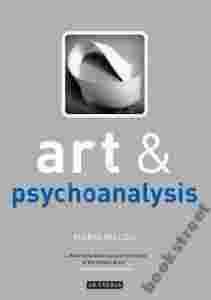|
Often derided as unscientific and self-indulgent,
psychoanalysis has been an invaluable resource for
artists, art critics and historians throughout the
twentieth century. Art and Psychoanalysis investigates
these encounters. The shared relationship to the
unconscious, severed from Romantic inspiration by Freud,
is traced from the Surrealist engagement with
psychoanalytic imagery to the contemporary critic s use
of psychoanalytic concepts as tools to understand how
meaning operates. Following the theme of the object with
its varying materiality, Walsh develops her argument
that psychoanalysis, like art, is a cultural discourse
about the mind in which the authority of discourse
itself can be undermined, provoking ambiguity and
uncertainty and destabilising identity. The dynamics of
the dream-work, Freud s familiar unfamiliar , fetishism,
visual mastery, abjection, repetition, and the death
drive are explored through detailed analysis of artists
ranging from Max Ernst to Louise Bourgeois, including
1980s postmodernists such as Cindy Sherman, the
performance art of Marina Abramovic´ and post-minimalist
sculpture. Innovative and disturbing, Art and
Psychoanalysis investigates key psychoanalytic concepts
to reveal a dynamic relationship between art and
psychoanalysis which goes far beyond interpretation.
There is no cure for the artist - but art can reconcile
us to the traumatic nature of human experience,
converting the sadistic impulses of the ego towards
domination and war into a masochistic ethics of
responsibility and desire.
|
|

